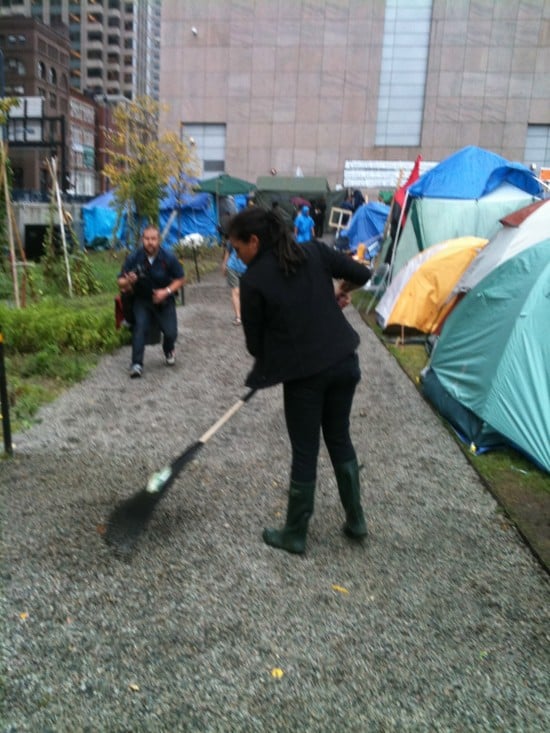Occupying Our Gardens
By:
October 17, 2011
You remember that production of Candide we saw together? Bernstein’s operetta, its libretto mordant and frothily faithful to Voltaire; we sat in our accustomed bargain seats in the very topmost tier of the house, level with the carved-letter legend —TO HOLD AS ‘TWERE A MIRROR UP TO NATURE— running across the top of the proscenium. I remember we talked (how we talked, settled in those cramped seats, as if we had all the time in the world) about Candide’s picaresque exile; how, like Casanova, Moll Flanders, and Jean-Jacques Rousseau, Voltaire’s hero is an avatar of early-modern wandering, characters who lived or were made in a time when the ancient estates seemed to be shattering. It somehow became possible (if only just possible) for one to leave the mossy enclosures of class, fate, and fortune; assume a new identity; and establish the estate of the self. Candide never followed his feral path in perfect liberty, but always under pursuit; he and his fellow wanderers took up and dropped new identities to suit the shifting ecosystems of new markets, disaster, and religious war. They flourished like weeds in disturbed soil.
Although fresh and new-founded, the estate of the modern self had its border zones, fey shadowlands where unexamined assumptions came out of hiding to reign sovereign. By degrees, however, we colonized the wilderness at the edges of the self: populated it with pet theories and pop psychology, set domesticated stories as its sentinels, substituted sentiment for spirit. Of course, the gentrification of settled occupations and a well-kept homes never did entice you; those blue highways and flinty wastes, those fried lakes and dry washes, were always beckoning. The forces of settlement, for their part, were too satisfied and certain even to bother pursuing you; for my part, I must count myself among their captives and collaborators.
In time, the unfettered pursuit of happiness became the best of all possible prisons. Perhaps now we’re all beginning to emerge from the Panglossian fog. We used our tools, our storytelling gadgets, to convince ourselves that all was for the best. But now — in the parks and squares, in tents and marches, kettled and sprayed — we’ve begun to taste the collective effervescence that happens when people stop waiting for permission and begin to make and do things together. We’ve learned online to search and to ask without license, spontaneously, to take from the best where we find it. And now the occupiers are discovering that the linking and the liking they’ve been doing online also can be sweet when practiced in person.
Bernstein’s rousing finale, at once appropriate to and at odds with the hushed tones of Voltaire’s own conclusion, comes to mind: you’ll recall the entire cast, Candide and his fellow argonauts, arm in arm on hands and knees like protesters, singing their unbowed secular hosannas in full throat. I think of you then in the cheap seats, face wet, hair blown back by song; I think of you now as a feral gardener wherever you are, tending your own spirited occupation.

ALSO SEE: Rushkoff vs. the 1% (1) | Tactical Utopia | Feral Dissent | Don’t Mourn, Organize | Occupying Our Gardens | Grand Theft Politics | The Black Iron Prison | News about the Wage Slave’s Glossary
